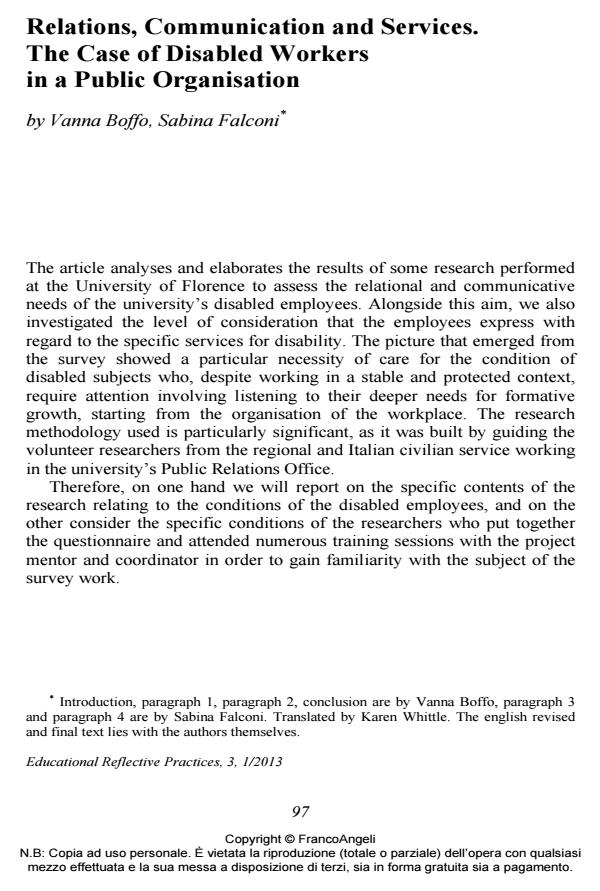Relations, Communication and Services. The Case of Disabled Workers in a Public Organisation
Titolo Rivista EDUCATIONAL REFLECTIVE PRACTICES
Autori/Curatori Vanna Boffo, Sabina Falconi
Anno di pubblicazione 2013 Fascicolo 2013/1
Lingua Inglese Numero pagine 16 P. 97-112 Dimensione file 193 KB
DOI 10.3280/ERP2013-001007
Il DOI è il codice a barre della proprietà intellettuale: per saperne di più
clicca qui
Qui sotto puoi vedere in anteprima la prima pagina di questo articolo.
Se questo articolo ti interessa, lo puoi acquistare (e scaricare in formato pdf) seguendo le facili indicazioni per acquistare il download credit. Acquista Download Credits per scaricare questo Articolo in formato PDF

FrancoAngeli è membro della Publishers International Linking Association, Inc (PILA), associazione indipendente e non profit per facilitare (attraverso i servizi tecnologici implementati da CrossRef.org) l’accesso degli studiosi ai contenuti digitali nelle pubblicazioni professionali e scientifiche.
The article illustrates the outcome of some empirical research carried out at the University of Florence on the topic of the relations and communication of disabled people employed in the various organisational contexts of the university. The theoretical model followed is that of care in the workplace as a means and end for the formative well-being of subjects who, in a particular existential condition, may suffer the professional environment rather than live it to the full in terms of human and social resources. The survey, conducted according to a qualitative-quantitative method, tends to highlight how the educational-formative practice of everyday working life has to be built up through the highly reflective personal contribution of the subjects who work alongside and with the disabled people.
Vanna Boffo, Sabina Falconi, Relations, Communication and Services. The Case of Disabled Workers in a Public Organisation in "EDUCATIONAL REFLECTIVE PRACTICES" 1/2013, pp 97-112, DOI: 10.3280/ERP2013-001007